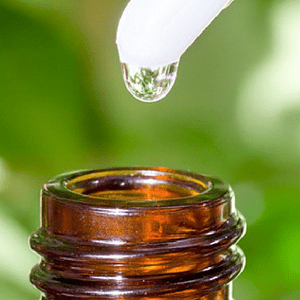Anyone who knows me knows I love my essential oils. I think they’re fantastic and I’ve spent over ten years exploring them, but I’m aware my love for them is waning. This may sound curious from an aromatherapist, but I’ve been thinking about it for a while.
If I’m honest it’s not the essential oils I’ve lost love with. It’s the anger, bitterness and fighting that’s going on around them. When I qualified essential oils were an emerging market, known, but not overly mainstream. I qualified from a good school, joined a membership body, and, like driving a car, I built my knowledge over time. A few years ago, I was still in awe about how much I didn’t know, but felt I could hold my own in a conversation.
Then, suddenly, things have changed. A rise of Multi Level Marketing companies has meant essential oils are becoming more mainstream in the UK. You would think this would be a good thing, but there’s concerns about how they’re being recommended to be used. The thing is, some of the practices are unsafe, so many aromatherapists have taken to social media exasperated at what they’re seeing and there’s handbags at dawn with the representatives defending their stance.
These representatives have joined a company they believe in, they’ve been given information they believe to be correct and are going to defend their position. They are going to challenge aromatherapists that maybe their knowledge is a little outdated or conservative, because they’re trying to make a living from it. The response from the aromatherapists is a vitriol of anger and attack, that these people should back off and stop pushing oils which they clearly don’t fully understand.
Not surprisingly, aromatherapists are afraid – of the companies stepping on their toes, that this is going to create long term problems or health issues that people won’t know how to deal with, that someone could literally get killed from the advice being given. The thing is though, if there is a major issue will a representative know how to deal with it and will they be insured for the advice they’re given? As an aromatherapist the buck stops with us – if there’s an issue we have to advise appropriately, report as necessary, and inform our insurance company.
If I’m honest, this is only part of the problem for me. I can see essential oils becoming a bit of a time bomb. At some point there’s going to be a major issue and there will be a call for legislation, regulation, and protection of the public. Personally, if only qualified people can advise on essential oils or obtain them, I don’t see it as a bad thing, as it’s going to stop a lot of the issues.
What has shaken me more recently is how the aromatherapy world is now turning on one another. Until this year I will put my hand up and say I was advising people to dilute their oils in the bath with full fat milk. Because that is what I had been led to believe was right. And now I’ve been told it isn’t.
That has made me question what else I know that is wrong; what do I know is actual fact? Currently there seems to be daily information challenging current aromatherapy belief. Recently, there’s been a post about functional groups and how this theory is incorrect. Basically, learning functional groups is a way essential oil chemistry is introduced as a way to help you navigate the plethora of essential oils. Aromatherapy chemistry tells you about how the different chemical compounds are produced, and then the functional theory suggests that if a particular oil is part of a particular chemical group then it will have particular properties to it. I’ve known about the challenge around this for some time, and I enjoyed reading the blog post about it, as it was informative. It’s the comments after that got me. It’s the suggestion that those who could possibly have been trained in this way are silly for believing it.
But, this got me thinking. What makes aromatherapists different to multi level marketing representatives? We’re believing what we’ve been taught. We’re defending what we think is true. I’ve been taught about functional groups, if I’m honest, I don’t really use them but it’s mainly because I can never remember which groups are meant to signify particular properties. But how do we know what we’ve been told is correct, how can we defend our training in the cold light of day?
I don’t have a problem with research, I don’t have a problem with being told we may have it wrong, but there’s no one offering appropriate training to combat this. It’s fine telling us the approach may be wrong, but what is right? Is the latest news on the internet correct, can we trust the aromatherapy training course syllabus to have been updated to the latest news? We don’t know, we can only trust what we’re being told, and that puts us in the same boat as the representatives. So, who do we think we are to attack and denounce what they believe? As aromatherapists we do have evidence and research that tells us their methods are unsafe, however I’m also aware that aromatherapy in the UK is conservative in its approach and that there is a middle ground, but that to go down this road you really do need to be appropriately trained.
I realise we can only deal with the latest information we have, but to suggest those still adhering to these methods are more lowly trained than others is  disheartening. It’s also exactly the same approach that has been taken towards the representatives. It seems that there is an attempt to make an elitist side to aromatherapy. It seems the fight among aromatherapists is to pull at the very foundations. This elitism and fight may be a good thing in the long run, as it will encourage many aromatherapists to get their knowledge base built up further, and that will help the profession to move forward on a more solid foundation. But without the resources many aromatherapists are floundering.
disheartening. It’s also exactly the same approach that has been taken towards the representatives. It seems that there is an attempt to make an elitist side to aromatherapy. It seems the fight among aromatherapists is to pull at the very foundations. This elitism and fight may be a good thing in the long run, as it will encourage many aromatherapists to get their knowledge base built up further, and that will help the profession to move forward on a more solid foundation. But without the resources many aromatherapists are floundering.
For the meantime, I’ve decided to keep away from the negative, constant attacking social media posts. I see them, but I choose not to engage. I’m more interested in education, about how this is going to move forward. Those reading this post will now have some idea about what is going on in the aromatherapy world and that at the moment, everything is up in the air, but I would still recommend you listen to an aromatherapist rather than a representative.
Why? Because an aromatherapist is insured; they’re more likely to have an idea about latest research, even if it has challenged their current knowledge base and they’re not trying to sell you a mass of different oils without working out why you want the oils. My clients don’t care how I choose my oils, they want to know I’m picking ones based on the best knowledge I have to date and they trust me to make sure I try to do the best for them. I’m not going to recommend an off the shelf oil that isn’t tailored for them, but a bespoke blend I’ve created after listening to what they want.
As for me? I guess I need to remember it’s all about the oils. About how they can help me deal with common issues, about how my clients love the different aromas we create for their massages, about how I introduce people to exquisite blends and new essential oils. Things will turn out how they’re meant to be, I’ll get involved when people ask and I’ll continue to educate when I get called to do so.
 Louise is an holistic therapist who owns the Therapy Centre, BS14 9HB, a clinic offering a range of holistic and beauty therapies. Louise offers reflexology, aromatherapy, aromatology, holistic massage, Indian head massage, reiki, baby massage and story massage. She is a mum of two boys and when she is not working she enjoys getting outdoors with her family. For further information visit louise-morgan.co.uk or contact her clinic on 01275 217160
Louise is an holistic therapist who owns the Therapy Centre, BS14 9HB, a clinic offering a range of holistic and beauty therapies. Louise offers reflexology, aromatherapy, aromatology, holistic massage, Indian head massage, reiki, baby massage and story massage. She is a mum of two boys and when she is not working she enjoys getting outdoors with her family. For further information visit louise-morgan.co.uk or contact her clinic on 01275 217160
